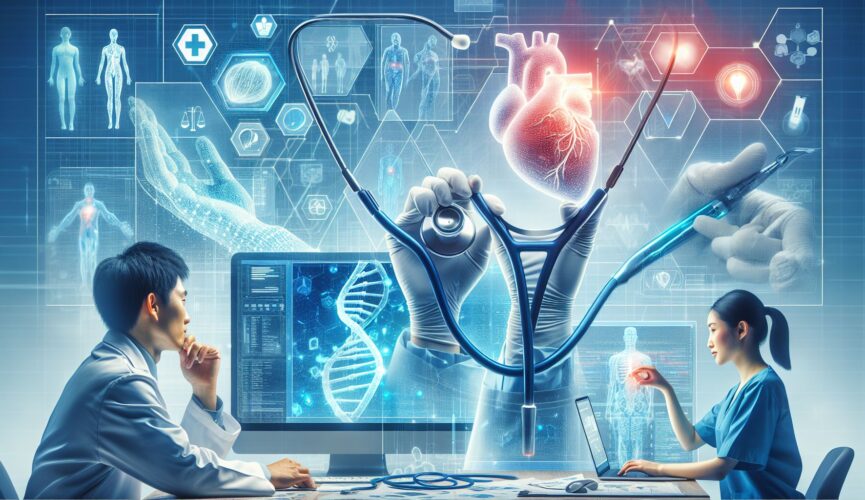Technology has had a profound impact on various aspects of our lives, and medicine is no exception. From enhancing patient care to revolutionizing diagnostic capabilities, the field of healthcare has benefitted immensely from technological advancements. The marriage of technology and medicine has opened up a world of possibilities, transforming the way diseases are prevented, diagnosed, and treated. In this blog post, we will explore some of the notable ways in which technology is shaping the future of medicine.
Enhanced Diagnostic Capabilities
One of the significant breakthroughs in the medical field is the use of cutting-edge technology for accurate and swift diagnostics. Advanced imaging techniques such as Magnetic Resonance Imaging (MRI), Computed Tomography (CT), and Positron Emission Tomography (PET) scans allow healthcare professionals to visualize internal organs and detect anomalies with exceptional precision. Moreover, computer-aided diagnosis systems analyze medical images, helping radiologists to identify potential abnormalities that might have otherwise gone unnoticed. This integration of technology not only saves time but also improves diagnostic accuracy, thus enabling prompt and effective treatment.
Telemedicine: Healthcare from Afar
The advent of telemedicine has broken barriers in providing healthcare services in remote areas. With the help of teleconferencing tools, doctors can now remotely examine patients, offer consultations, and even monitor their vital signs. This innovation has revolutionized healthcare delivery, particularly for those who reside in rural or medically underserved areas. Furthermore, telemedicine has proven to be a lifeline during emergencies and natural disasters when accessibility to medical facilities is limited. Patients can connect with physicians virtually, ensuring immediate medical attention and timely intervention.
Wearable Devices for Personal Healthcare
The rise of wearable health technology has given individuals unprecedented control over their personal healthcare. Devices such as fitness trackers, smartwatches, and health-monitoring apps have become widely popular, empowering individuals to monitor their vital signs, physical activity, and sleep patterns. This valuable data can be shared with healthcare professionals, providing them with a deeper understanding of the patient’s health and enabling them to personalize treatment plans accordingly. By encouraging real-time monitoring, wearable devices promote preventive healthcare, allowing potential health issues to be addressed before they escalate into major concerns.
Robotics: Revolutionizing Surgery
Robot-assisted surgery has emerged as a game-changer in the medical field. With the precision and dexterity of robotic arms, surgeons are now capable of performing complex procedures with enhanced precision, minimizing the invasiveness of surgical intervention. The use of robot-assisted surgery has resulted in reduced blood loss, smaller incisions, shorter recovery times, and lower rates of complications. By ensuring greater surgical precision, robotics contributes to improved patient outcomes and a faster return to normalcy.
In conclusion, technology has become an indispensable part of medicine, playing a pivotal role in transforming healthcare as we know it. From improving diagnostics and enabling remote healthcare services to empowering individuals with wearable devices and revolutionizing surgical techniques, the fusion of technology and medicine continues to revolutionize the field. As technology continues to evolve, we can expect to witness even more groundbreaking advancements that will shape the future of healthcare – ultimately leading to better patient outcomes and a healthier society overall.
